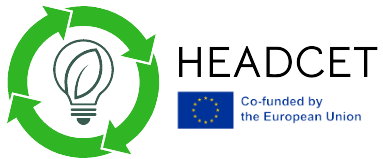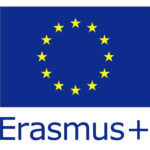Project topics

Circular Economy
HEADCET aims to update/upgrade academic curricula in circular economy (CE) issues. The partners will share some best practices and projects (LA and EU) on collaborative local labs (COLLs) on circular economy (CE) and circular economy innovations. Selected target sectors of CE innovations are: construction, agriculture, tourism and culture.
All partners will enhance competencies and skills of LA HEIs in CE by the review of the ESD Framework (Education for Sustainable Development) as a part of Sustainable Development Goals, SDG 4: quality education.
In-depth analysis of the current academic offer in LA HEIs, leaning experience of case studies (at least 3 in all target territories), discussions on regional and national circularity in LA Countries, partnership actions with different stakeholders (SMEs, NGOs, universities, local authorities etc.) will help to assess and reformulate in innovative way existing learning and training activities in CE.
HEADCET also aims to design a new job figure in CE, the Circular Economy Agent, whose profile will improve the employability of universities’ students (with a particular attention to gender balance and vulnerable groups) and will help to overcome the barriers for the transition to the CE in LA Countries faster.
Finally, HEADCET will reinforce local, national and international networks on CE which will produce a positive impact on society at large to meet a more sustainable and inclusive growth.
The Circular Economy: What, Why,
How and Where
Paul Ekins, Teresa Domenech, Paul Drummond, Raimund Bleischwitz,
Nick Hughes, Lorenzo Lotti
UCL Institute for Sustainable Resources, University College London
Sustainable Development
Universities - and educational institutions more generally - can play a key role in educating and acting for sustainable development. The framework of Education for Sustainable Development (Unesco, 2015) calls for a transformation in the ways of teaching; new didactics that put young people at the center and provide capacities and skills to reflect on the current and future social, cultural, economic and environmental impacts of individual and collective action. However, the search for a better future is not only about science and research as a neutral basis for decision-making and policy-making. Universities, as complex organisations acting in society, can and should integrate sustainability in all their activities, showing themselves as real examples of actors for change and transformation.
This is the mission of the HEADCET project which, combining the principles of circular economy, multi-level governance and social innovation, aims to empower individuals to act in complex situations in a sustainable way, to explore new ideas and approaches and to actively participate in economic, social and political processes at local level.


Social Innovation
HEADCET philosophy is firmly rooted in social innovation principles. Social innovation is considered a potential lever to reach a more inclusive society by addressing the so-called grand challenges or wicked problems characterized by high complexity and multi dimensionality including climate change, social exclusion and inequalities. Universities have started to introduce new curricula, research projects and alliances as well as outreach activities devoted to social innovation in order to achieve not only responsible research and innovation objectives but also to meet the requirements of rapidly changing labor markets. Social innovation practices, such as community engagement, service learning and partnering with local communities are particularly relevant as they seek to involve all universities’ local stakeholders to meet a more inclusive society, creating new social relations among local communities and including the more vulnerable groups in empowering processes.